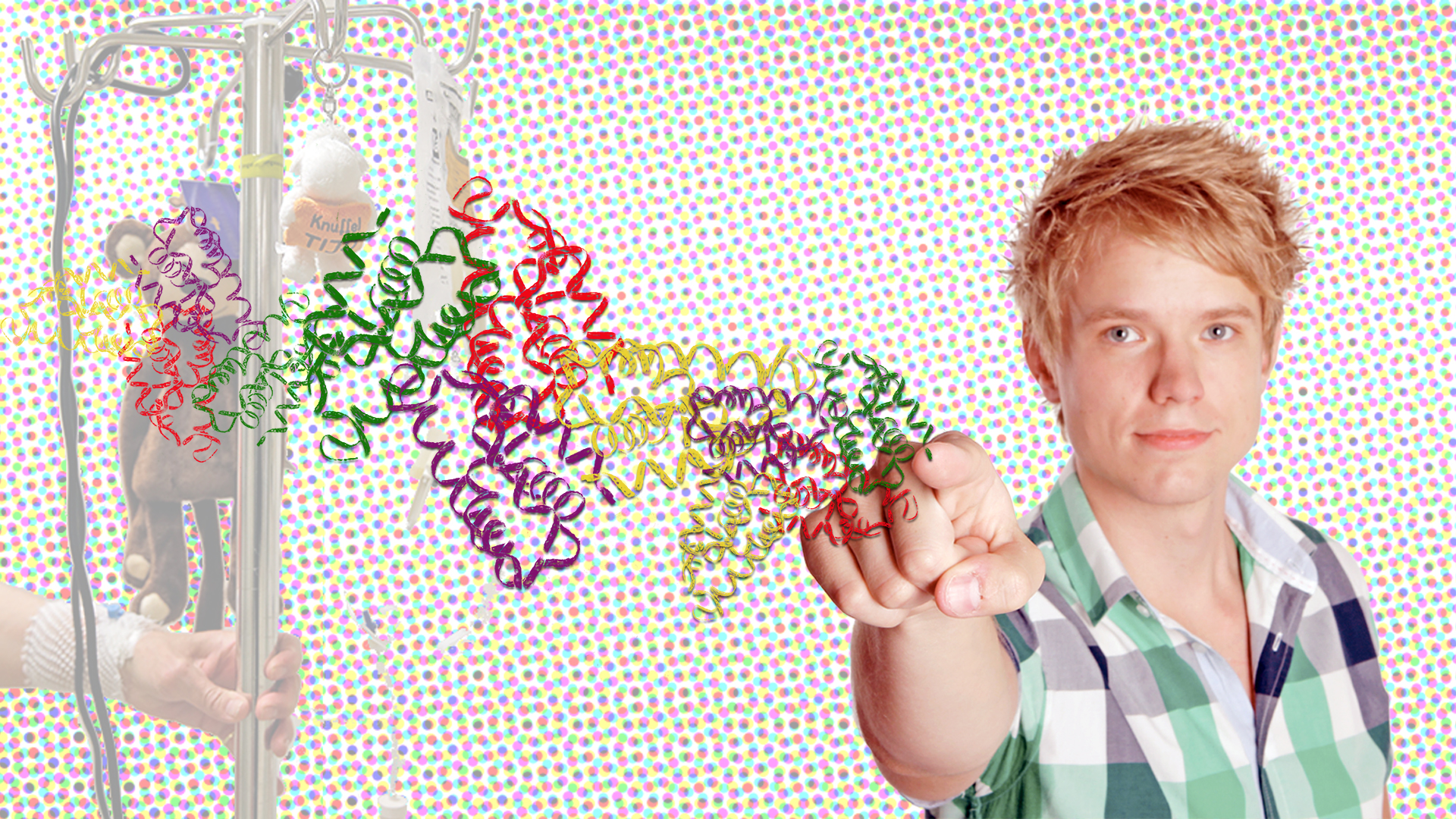What we do
About our project
Background information
Pompe disease is the first inherited muscle disease for which a disease-specific treatment has been developed: the deficient enzyme can be intravenously supplied through enzyme-replacement therapy (ERT) with alglucosidase alfa.
Overall aim
Our aim is to investigate the long-term effects of enzyme-replacement therapy in children and adults with Pompe disease, and to define predictive factors for a favorable outcome.
Research method
All patients known with Pompe disease at our Center are followed through a standardized follow-up protocol.
We focus on the long-term effects of enzyme-replacement therapy on: muscle strength, muscle function, pulmonary function, cardiac function, hearing, speech development, cognitive development, quality of life and functioning in activities of daily living and participation (self-reported questionnaires).
At present, approximately 180 patients take part.
Desirable outcome
By detailed investigation of the long-term effects we hope to find factors important for the response to enzyme treatment. This will help to implement ‘personalized’ treatment, and aid in the search for (better) future treatment modalities.

Collaborations
Publications
Long-term benefit of enzyme replacement therapy in Pompe disease: a 5-year prospective study.
Kuperus E, Kruijshaar ME, Wens SCA, de Vries JM, Favejee MM, van der Meijden JC, Rizopoulos D, Brusse E, van Doorn PA, van der Ploeg AT, van der Beek NAME. (2017). Neurology. 2017 Dec 5;89(23):2365-2373.
Pompe disease in adulthood: effects of antibody formation on enzyme replacement therapy.
De Vries JM1,2, Kuperus E, Hoogeveen-Westerveld M, Kroos MA, Wens SC, Stok M, van der Beek NA, Kruijshaar ME, Rizopoulos D, van Doorn PA, van der Ploeg AT, Pijnappel WW. (2017). Genet Med. 2017 Jan;19(1):90-97.
Phenotypical variation within 22 families with Pompe disease.
Wens SC, van Gelder CM, Kruijshaar ME, de Vries JM, van der Beek NA, Reuser AJ, van Doorn PA, van der Ploeg AT, Brusse E. (2013).Orphanet J Rare Dis. 2013 Nov 19;8:182.
Clinical features and predictors for disease progression in adults with Pompe disease: a nationwide prospective observational study.
Van der Beek NA, de Vries JM, Hagemans ML, Hop WC, Kroos MA, Wokke JH, de Visser M, van Engelen BG, Kuks JB, van der Kooi AJ, Notermans NC, Faber KG, Verschuuren JJ, Reuser AJ, van der Ploeg AT, van Doorn PA. (2012). Orphanet J Rare Dis. 2012 Nov 12;7:88.
Effect of enzyme therapy and prognostic factors in 69 adults with Pompe disease: an open-label single-center study.
De Vries JM, van der Beek NA, Hop WC, Karstens FP, Wokke JH, de Visser M, van Engelen BG, Kuks JB, van der Kooi AJ, Notermans NC, Faber CG, Verschuuren JJ, Kruijshaar ME, Reuser AJ, van Doorn PA, van der Ploeg AT. (2012). Orphanet J Rare Dis. 2012 Sep 26;7:73.

